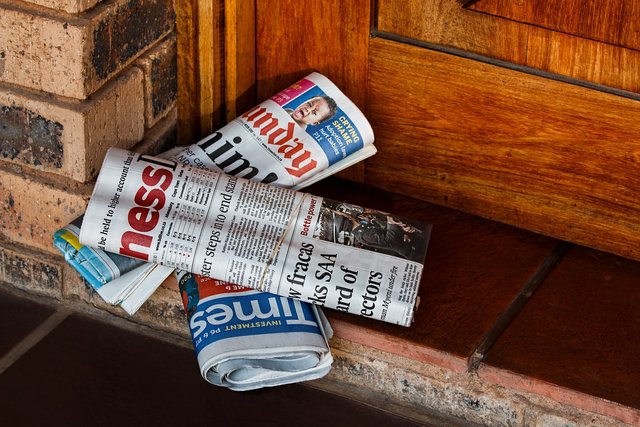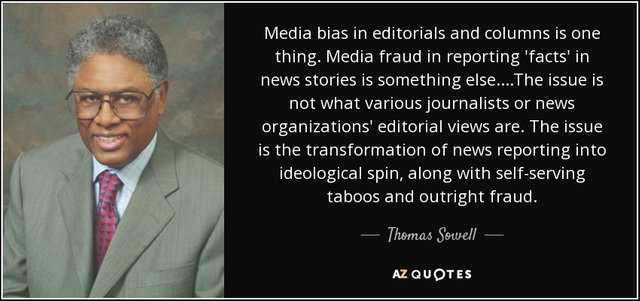The Voice Of A Journalist

Some say that a journalist should only ever remain completely objective, in the way that they won't be engaging in journalism in any philosophical sense. Stick to the facts and leave your own bias and opinion out of it. In other words, we're supposed to believe that journalists don't have their own views and own opinions, or if they do they are supposed to leave them at the door if they want to perform professionally.

There has been a longstanding mythology surrounding journalism, that asserts the notion that in order to be any sort of "real journalist" that you need to hide or pretend that you don't have your own personal political opinions. You might even say that this perpetuated misunderstanding has contributed to the degradation of how the profession of journalism overall is perceived.
We All Have Our Own Opinions
It will make you much more credible and appear more trustworthy and honest, if you are upfront about your political views. State exclusively what your opinions are, rather than putting in effort to try and hide them, conceal them, or pretend that they don't exist. It's better to be real with people than to operate with some conceit like you are void of personal opinions and individual political leanings.
There are a great deal of journalists/political activists out there who hold strong views and because of their authenticity in being transparent and sharing their views, they've managed to crusade for their cause and still do important journalism that many find valuable.
In fact, it might make them even better at their job if those journalists were to keep it real, and honor their own true actual voice, because it might help them more honestly engage with their readers and audience.

Where Are We Headed
Just a few weeks ago, a panel of experts at Harvard had a discussion on the future of journalism in the era of fake news; what they are calling the 'Post-Truth Era'. It just goes to show that a lot of people are concerned about what they are being told today and wondering about the role of a journalist in keeping the public informed.
Many people don't trust a lot of what the media has to tell them these days, or what people online tell them too for that matter, and within the cloud of chaos going on around the world it seems that truth is becoming increasingly difficult to find and know. People are eager for transparency and honesty, they are tired of being lied to.

At the center of their occupational role, journalists are tasked with taking the facts and the real truth to the public and then letting the public make up their own mind on the matter. But does that mean that the journalist has to get rid of their own voice? Does that make them more trustworthy and authentic? It is only when journalists skew and misrepresent facts, in order to support their own political narrative, which is when you really have a problem Because then you can get something quite far off from truthful and honest intellectual journalism; a sea of propaganda and disinformation like we have today.

There are some good people out there who are still doing real journalism and honestly searching for the truth, but you don't get to hear much from them. They aren't the narratives which saturate the various media platforms that we consume every day. Thanks to technology, you no longer need to work for a major corporation in order to get some message out to the public. And there are many different sources out there when it comes to finding alternative information to the mainstream.
Everyone has a view, everyone has their own opinions, and I don't think journalists should try to hide or pretend like they don't have their own. Quite often it is the journalist's own political opinions which are going to inspire them to take on whichever stories they are interested in investigating and sharing with the world. I think it's refreshing to be upfront with the audience and let them know where you are coming from, where you stand on what issues; building trust and authenticity.
Pics:
Pixabay
Clipart Panda
AZ quotes
Sources:
https://www.americanpressinstitute.org/journalism-essentials/what-is-journalism/elements-journalism/
http://bit.ly/2lUjcTt
@DoItVoluntarily, your post has been chosen by @STEEMNEWS.ONLINE as one of today's promoted posts for its excellent content. We've upvoted, resteemed and published it through Facebook & Twitter.
As the author of a SNO featured article, you've been awarded one TRAIL coin. Please stop by the SteemTrail Discord server to learn more about how to claim your TRAIL coin. You will need an Open Ledger account to do so.
STEEMNEWS.ONLINE is the @SteemTrail for #news and watches the #steemnews tag most closely. Please consider supporting excellent news articles by making steemnews.online one of your operators on Streemian, in addition to steemtrail.
Thank you for your hard work and contribution of excellent content to Steemit.

If you would rather not be promoted by STEEMNEWS.ONLINE, please inform us by replying to this comment and we will honor your request.
As a curator of news articles, your insights are appreciated.
When reading substantiated facts and logical conclusions, it's easy to promote. As soon as "I think" enters the equation, it becomes at least somewhat subjective and is more difficult to promote. There is a fine line between journalism and OpEd sometimes. That's not bad, just challenging to discern. And it's possible that there is no objective measurement, so our biases come to the table as well.
your post is inspiring
Of course journalists have opinions just like everyone else, and of course they don't have to conceal their opinions. However, like you wrote, journalism is not about one's opinions but about describing reality. A good journalist does that in her or his own voice, but knows how not to cross the line between writing from a personal point of view to writing about her/him self
Reality is subjective to a large degree. In people's minds, that is. Of course we all know that there is an objective reality, but we can never escape our own heads, so reality shows itself differently to different people.
great points! thx for your feedback and thx for reading :)
There is no objectivity is journalism. I was one for 2 years, and the simple fact that I chose this story over that story showed my bias.
That being said, there are ways to be honest about it. I most politics panels in the US, the person's political affiliation is usually "branded". In Quebec (Canada), most panels seem to range from the far-left to the center-left...
When I went to college, I wanted to become a great journalist. In my very first journalism course I discovered that journalism has nothing at all with the truth.